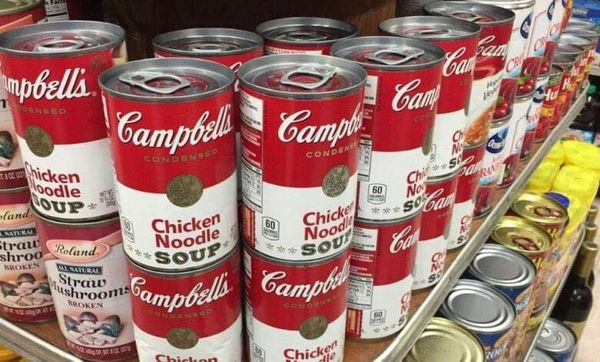
On the Brink: The Future of Campbell’s Soup
Campbell’s Soup, a beloved American brand with a rich history spanning nearly two centuries, is facing a critical moment. The company’s traditional processed food offerings no longer align with the growing consumer preference for natural and unprocessed options. This shift has led to Campbell’s struggling to diversify its portfolio and accumulating a staggering $9 billion debt.
Internal Strife Adding to the Mix
As if the mounting debt and changing market dynamics weren’t challenging enough, a dispute between major shareholders has further complicated the situation. The Dorrance family, who own 40% of Campbell’s shares, and hedge fund manager Daniel Loeb of Third Point, who holds approximately 7% of the stock, are engaged in a power struggle.
Loeb has been advocating for transformative changes in the company, including rebranding initiatives that could even alter Campbell’s iconic red and white cans. However, the Dorrance family resisted these proposed changes, resulting in Loeb suing the company for alleged mismanagement.
A Step Towards Resolution and Change
Despite the tension, there seems to be a glimmer of hope for finding common ground. Both parties have agreed to appoint two directors suggested by Third Point to Campbell’s board. This indicates a potential for more modifications and a willingness to adapt as the company faces the realities of ensuring its survival.
The Implications of Campbell’s Potential Closure
The possibility of Campbell’s Soup closing its doors has profound implications for its loyal consumer base and reflects a broader trend of shifting consumer preferences. For loyal Campbell’s fans, the closure would be a significant loss, while industry observers would see it as evidence of the growing consumer move away from processed foods.
To weather this storm and remain relevant in a rapidly evolving market, Campbell’s must embrace adaptation and make substantial changes to its business model. The company’s journey through these challenging times will serve as a valuable case study for other businesses navigating the balance between tradition and embracing change.
As we watch Campbell’s Soup navigate this turbulent period, the actions they take will not only shape their own future but also provide insights into how established brands can adapt to changing consumer trends and preferences.



